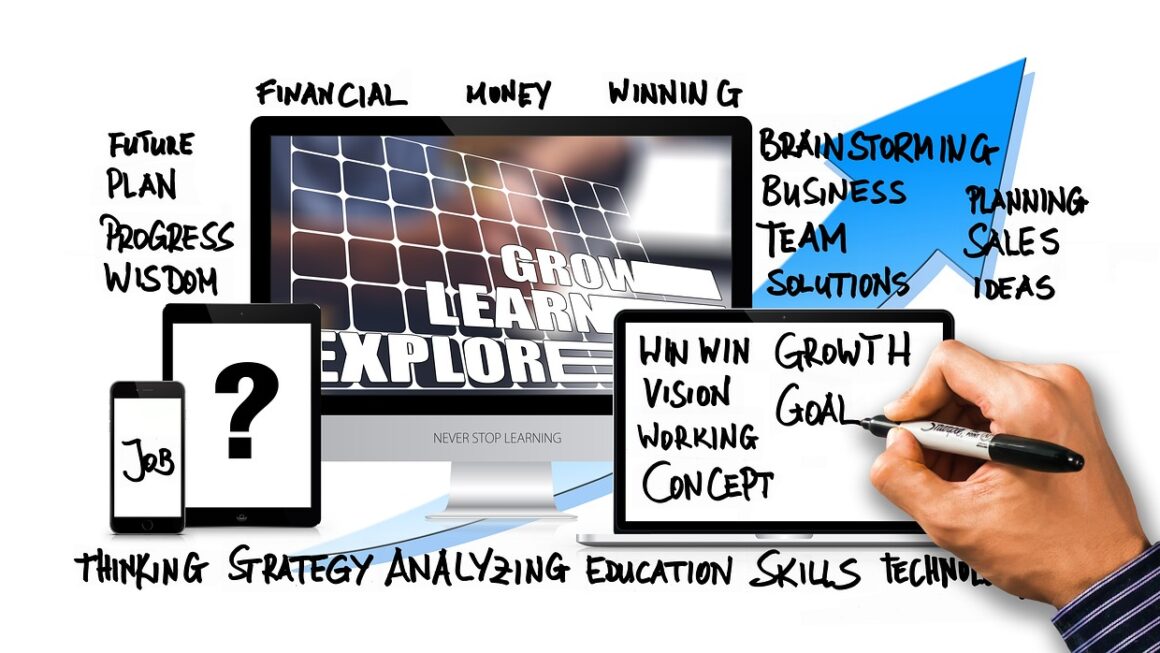The world of education is rapidly evolving, and online learning platforms are at the forefront of this transformation. No longer confined to traditional classrooms, learners of all ages can access a wealth of knowledge and skills from anywhere in the world, at any time. These platforms offer unparalleled flexibility and customization, making education more accessible and engaging than ever before. This article explores the diverse landscape of online learning platforms, their key features, and how they are reshaping the future of education.
Understanding Online Learning Platforms
Online learning platforms are digital environments designed to deliver educational content and facilitate interaction between instructors and learners. They encompass a wide range of technologies and methodologies, catering to diverse learning styles and subject areas. These platforms are transforming education by providing accessible, flexible, and personalized learning experiences.
Types of Online Learning Platforms
- Learning Management Systems (LMS): These platforms are typically used by educational institutions and corporations to manage and deliver courses. Examples include Moodle, Blackboard, and Canvas.
Features: Course management, assessment tools, communication features, and reporting capabilities.
Benefits: Streamlined course delivery, centralized resource management, and improved communication between instructors and students.
- Massive Open Online Courses (MOOCs): MOOCs offer courses to a large number of learners, often free of charge. Popular platforms include Coursera, edX, and Udacity.
Features: Video lectures, interactive exercises, discussion forums, and peer assessment.
Benefits: Access to high-quality education from renowned institutions, global learning community, and flexible learning schedules.
- Specialized Skill Development Platforms: These platforms focus on specific skills or industries, offering targeted training programs. Examples include Skillshare, LinkedIn Learning, and Udemy.
Features: Project-based learning, expert instructors, and career-oriented content.
Benefits: Acquisition of in-demand skills, career advancement opportunities, and personalized learning paths.
- Virtual Classroom Platforms: These platforms facilitate real-time interaction between instructors and learners, mimicking the traditional classroom environment. Examples include Zoom, Microsoft Teams, and Google Meet.
Features: Video conferencing, screen sharing, breakout rooms, and chat functionality.
Benefits: Real-time feedback, collaborative learning, and increased engagement.
Key Features of Effective Online Learning Platforms
- User-Friendly Interface: An intuitive and easy-to-navigate interface is crucial for a positive learning experience.
- Mobile Compatibility: Access to learning materials on mobile devices allows learners to study anytime, anywhere.
- Interactive Content: Engaging content such as videos, simulations, and quizzes can enhance learning and retention.
- Personalized Learning Paths: Adaptive learning technologies can tailor the learning experience to individual needs and preferences.
- Assessment and Feedback: Robust assessment tools and timely feedback are essential for monitoring progress and identifying areas for improvement.
- Community Features: Forums, chat rooms, and social media integration can foster a sense of community and facilitate peer learning.
Benefits of Online Learning
Online learning offers numerous advantages over traditional classroom-based education, making it an attractive option for learners of all ages and backgrounds.
Flexibility and Convenience
- Self-Paced Learning: Learners can study at their own pace, adjusting their schedules to accommodate other commitments.
- Anytime, Anywhere Access: Online learning eliminates geographical barriers, allowing learners to access educational content from anywhere in the world.
- Reduced Commuting Time: Eliminating the need to commute to a physical classroom saves time and money.
Cost-Effectiveness
- Lower Tuition Fees: Online courses are often more affordable than traditional courses.
- Reduced Travel Costs: Eliminating the need to commute saves on transportation expenses.
- Access to Free Resources: Many online learning platforms offer free courses and resources.
Personalized Learning
- Customized Learning Paths: Online learning platforms can tailor the learning experience to individual needs and preferences.
- Adaptive Learning Technologies: These technologies adjust the difficulty level and content based on the learner’s progress.
- Targeted Feedback: Online learning platforms can provide personalized feedback to help learners improve their performance.
Wider Range of Course Options
- Access to Niche Subjects: Online learning platforms offer a wider range of courses than traditional institutions, including specialized and niche subjects.
- Learning from Experts Worldwide: Learners can access courses taught by experts from around the world.
- Career Advancement Opportunities: Online learning can help learners acquire in-demand skills and advance their careers.
Choosing the Right Online Learning Platform
Selecting the right online learning platform depends on individual needs, learning goals, and preferences.
Identifying Your Learning Goals
- Determine Your Objectives: What skills or knowledge do you want to acquire?
- Consider Your Learning Style: Do you prefer visual, auditory, or kinesthetic learning?
- Evaluate Your Time Commitment: How much time can you dedicate to online learning each week?
Researching Available Platforms
- Read Reviews and Ratings: Check online reviews to get an idea of the platform’s quality and user experience.
- Explore Course Catalogs: Browse the platform’s course catalog to see if it offers the subjects you’re interested in.
- Check Instructor Credentials: Research the instructors’ qualifications and experience.
Considering Key Factors
- Cost: Compare the tuition fees and other expenses associated with different platforms.
- Accreditation: Check if the platform is accredited by a reputable organization.
- Technical Support: Ensure the platform offers adequate technical support to assist with any issues.
- Community Features: Look for platforms that offer forums, chat rooms, or other community features.
- Mobile Compatibility: Verify that the platform is accessible on mobile devices.
- Trial Periods: Take advantage of free trial periods to test out the platform before committing to a subscription.
The Future of Online Learning
Online learning is poised to play an even greater role in education in the years to come, driven by technological advancements and evolving learner needs.
Emerging Trends
- Artificial Intelligence (AI): AI-powered tools are being used to personalize learning experiences, provide automated feedback, and predict learner outcomes.
- Virtual Reality (VR) and Augmented Reality (AR): VR and AR technologies are creating immersive learning environments that enhance engagement and retention.
- Microlearning: Microlearning involves breaking down learning content into small, digestible chunks, making it easier for learners to retain information.
- Gamification: Gamification techniques are being used to make learning more engaging and motivating.
Impact on Traditional Education
- Blended Learning: Traditional institutions are increasingly adopting blended learning models, which combine online and in-person instruction.
- Increased Accessibility: Online learning is making education more accessible to learners from diverse backgrounds and geographical locations.
- Lifelong Learning: Online learning is fostering a culture of lifelong learning, enabling individuals to continuously acquire new skills and knowledge throughout their lives.
Conclusion
Online learning platforms have revolutionized education by providing flexible, accessible, and personalized learning experiences. Whether you’re looking to acquire new skills, advance your career, or simply pursue your passions, online learning offers a wealth of opportunities. By understanding the different types of platforms, key features, and benefits of online learning, you can make informed decisions and unlock your full potential. As technology continues to evolve, online learning will undoubtedly play an even more prominent role in shaping the future of education. Embrace the possibilities and embark on your online learning journey today!




